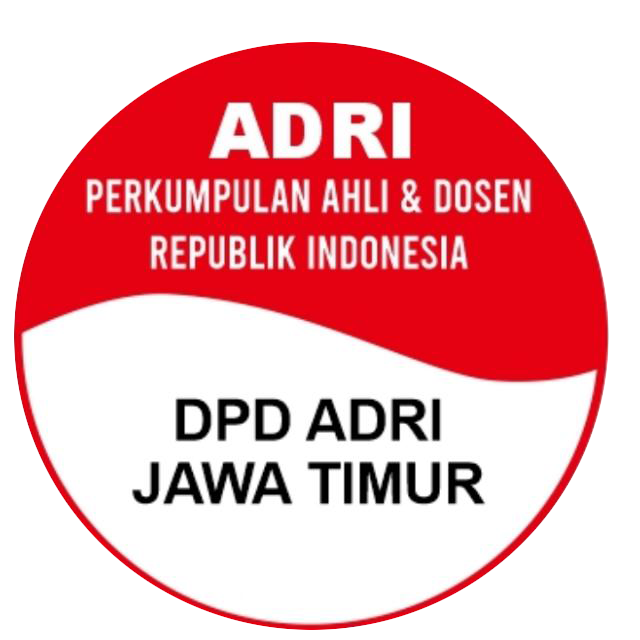Criminal Law Formulation Policy Regarding Payment of Money In Substitution For Criminal Acts of Corruption From The Perspective of Dignified Justice
DOI:
https://doi.org/10.55173/yurisdiksi.v21i3.321Keywords:
Corruption, Replacement Money, Criminal Law Formulation Policy, Dignified Justice, Recovery of State LossesAbstract
Corruption is an extraordinary crime that remains a serious problem in Indonesia despite the implementation of various regulations such as Law Number 31 of 1999 in conjunction with Law Number 20 of 2001 concerning the Eradication of Criminal Acts of Corruption. One important instrument in recovering state losses due to corruption is the penalty of replacement money. However, in practice, the application of replacement money as an additional penalty has not been effective due to legal and technical obstacles, such as the difficulty of tracking assets, weak coordination between law enforcement agencies, and the absence of a consistent execution mechanism. This study aims to analyze the legal implications of criminal law formulation policies related to the regulation of replacement money and to formulate a direction for criminal law reform based on the concept of dignified justice. This study uses a normative legal research method with a statutory, case, and conceptual approach. The analysis is conducted prescriptively through grammatical and systematic interpretation of laws and regulations, doctrine, and judicial practice. The results show that the regulation of replacement money as an additional penalty does not reflect substantive justice because it emphasizes the retributive aspect rather than the restorative aspect. Legal reform is needed by making compensation a primary punishment so that the primary objective of punishment is to restore state losses. The dignified justice approach positions humans as moral subjects responsible for redressing public losses, in line with the values of Pancasila. Therefore, this reformulation is expected to create a more just, humane, and socially just criminal legal system.
References
Ali, Z. (2016). Criminal Policy. Sinar Grafika.
Amiruddin, & Asikin, Z. (2016). *Introduction to Legal Research Methods*. Raja Grafindo Persada.
Arief, B. N. (2001). Problems of Law Enforcement and Crime Prevention Policy. Citra Aditya Bakti. (Kenedi, 2017; Arief, 2001) (Ali, 2016; Arief, 2011)
Arief, B. N. (2011). Anthology of Criminal Law Policy. Kencana. (Arief, 2011; Erwin, 2015) (Ali, 2016; Arief, 2011)
Ashshofa, B. (2013). Legal Research Methods. Rineka Cipta.
Atmasasmita, R. (2012). *Understanding Integrative Legal Theory. Legality, 3(1). (Amiruddin & Asikin, 2016) (Atmasasmita, 2012)
Damping, N. M. (2019). Corruption Eradication Law and the Systematic Dimension of Special Law*. UKI Press. (Marlina & Muliyono, 2023; Damping, 2019)
Erwin, M. (2015). *Philosophy of Law (Rev. ed.). Raja Grafindo Persada. (Erwin, 2015)
Kenedi, J. (2017). Criminal Law Policy (Penal Policy) in the Law Enforcement System in Indonesia. Pustaka Pelajar. (Arief, 2011; Erwin, 2015) (Kenedi, 2017; Arief, 2001) (Ali, 2016; Arief, 2011)
Maerani, I. A. (2018). Criminal Law and the Death Penalty. Unissula Press. (Arief, 2011; Erwin, 2015)
Marlina, A., & Muliyono, A. (2023). Corporate Legal Responsibility in Corruption Crimes*. Eureka Media Aksaran. (Marlina & Muliyono, 2023; Damping, 2019) (Amiruddin & Asikin, 2016)
Moleong, L. J. (2016). Qualitative Research Methodology. Rosdakarya Youth. (Muhaimin, 2020; Sunggono, 2015) (Moleong, 2016; Iskandar, 2009)
Muhaimin. (2020). Legal Research Methods. UPT Mataram University Press.
Rozah, U., & Nashriana. (2023). Analysis of Criminal Policy and the Philosophy of Non-Conviction-Based Forfeiture of Stolen Assets in Corruption Crimes. Indonesian Journal of Legal Development, 5(3). (Marlina & Muliyono, 2023; Damping, 2019) (Ali, 2016; Arief, 2011) (Amiruddin & Asikin, 2016) (Erwin, 2015)
Siambaton, F. K. (2019). Execution of Compensation in Corruption Crimes (Case Study at the Banyuasin District Attorney's Office) (Master’s thesis). Sriwijaya University. (Marlina & Muliyono, 2023; Damping, 2019)
Sofyansah, A. (2022). Reformulation of Additional Criminal Penalty Calculations for Convicts Who Have Insufficient Payments in Corruption Cases (Master’s thesis). University of Lampung. (Marlina & Muliyono, 2023; Damping, 2019) (Sofyansah, 2022; Rozah & Nashriana, 2023)
Sriwidodo, J. (2022). Corporate Crime Accountability in the Indonesian Criminal Law System. Kepel Press. (Arief, 2011; Erwin, 2015)
Sunggono, B. (2015). Legal Research Methodology. Raja Grafindo Persada. (Muhaimin, 2020; Sunggono, 2015) (Amiruddin & Asikin, 2016) (Moleong, 2016; Iskandar, 2009)
Thamrun, J. (2016). Prejudicial Dispute on Postponement of Examination of Criminal Case Related to Civil Case. Sinar Grafika.
Wahyuni, F. (2017). Fundamentals of Criminal Law in Indonesia. Nusantara Persada Utama. (Arief, 2011; Erwin, 2015)
Yofiza. (2025). Implementation of the Follow the Money Approach in Money Laundering Crimes (TPPU) from the Law Enforcement Side in Indonesia. Jaksa: Journal of Legal and Political Studies, 3(1). (Kenedi, 2017; Arief, 2001) (Amiruddin & Asikin, 2016) (Yofiza, 2025)
Zaenudin. (2018). Confiscation of Property Belonging to Convicts Not Obtained from the Proceeds of Corruption to Recover State Financial Losses (Doctoral dissertation). Brawijaya University. (Marlina & Muliyono, 2023; Damping, 2019)
Downloads
Published
Issue
Section
License
Copyright (c) 2025 M. Khoirun Ni'Am, Prija Djatmika, Abdul Madjid

This work is licensed under a Creative Commons Attribution-ShareAlike 4.0 International License.












